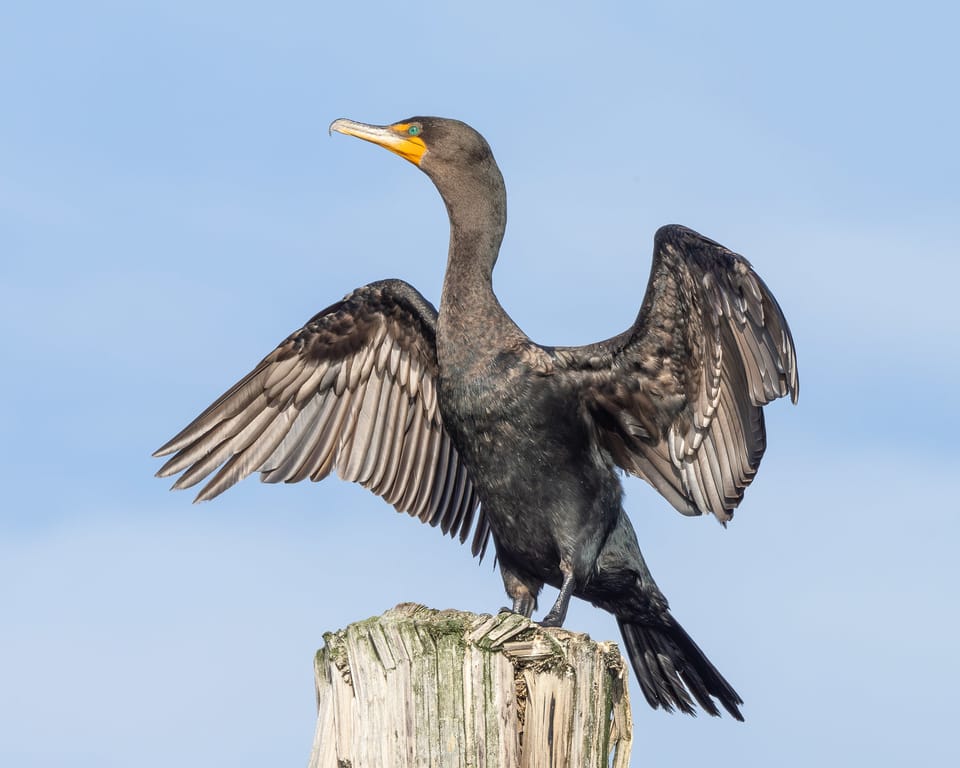EcoWest News, November 5, 2024

Welcome to EcoWest News, a weekly round-up of news and resources that you can put to use in addressing environmental issues and protecting the wild in your community.
Across the West
BC hopes its 8 LNG projects will be good for the economy, but Turning Tides: The economic risks of BC’s LNG expansion in a changing energy market paints a less optimistic picture. [Pembina]
Pathways Alliance wants to capture carbon pollution from Alberta’s oilsands and ship it 400 km by pipeline to an underground storage facility near St. Paul, AB. Locals have questions about the impact on air, groundwater, treaty rights, community consultation, and whether or not carbon capture actually works. [The Narwhal]
Six dams on the Nelson River generate over 70% of Manitoba’s electricity, but local First Nations say the dams have led to flooding, declining water quality, new animal migration patterns, new bugs and pests, and a loss of hunting and fishing lands. They hope to establish an Indigenous Protected and Conserved Area in recognition of the nations’ long-term stewardship of the region. [The Narwhal]
Art meshed with environmental awareness when University of Manitoba fine arts’ students gathered and shaped local clay, employing low-fire and once-firing techniques. [UManitoba]
The City of Winnipeg has committed to setting aside 10% of its combined sewer funds for green infrastructure such as rain gardens. [CBC]
Across Canada
Sustainable building practices are reliant on energy efficiency, retrofitting with prefabricated solutions, reducing embodied carbon, and government financial support for retrofits. [Sustainable Building Manitoba, Western Built]
Around the World
Warming temperatures have been shown to account for more than half the decline in native plant species in the Yangtze valley. Direct competition from non-native plants accounted for only 15%. [Nautil.us]
After a trial period charging a fee for cars entering Stockholm’s downtown core, congestion pricing went to referendum and passed by a large margin. The city had prepared well with more buses, more bus routes, and new park-and-ride facilities. [CBC]
Netflix is pioneering clean energy (renewable energy, alternatives to diesel generators, electrification of transportation) in the entertainment industry. [RMI]
Trees
Community involvement, from planning and planting to maintenance and stewardship, is a cornerstone of Los Angeles County’s Community Forest Management Plan. [National Recreation and Park Association]
One-third of the world’s tree species are at risk of extinction. Tree-planting schemes should incorporate a greater diversity of trees, including threatened species. [EuroNews]
When planting trees, it’s important to consider location and soil, to care for the trees once they’re planted, and to protect the trees already in place. [Yale Environment 360]
BC’s forestry industry is in trouble. Union leaders place the blame on overharvesting, lax forestry practices, and a failure to invest in value-added products. [The Tyee]
Making a Difference
A high school student’s Girl Scout project culminated in a Deep Sea Conservation festival. [The Revelator]
Two communications professionals discuss the ways in which people in the creative industry can advocate for action on climate change. [DeSmog]
DIY
Here are 5 ways each of us can help to protect biodiversity: cut consumption, watch what we eat, choose renewable energy, get our hands dirty, and adjust expectations. [The Conversation]
Young people ages 14-30 are invited to attend the Youth Environmental Changemakers Summit from March 25-30 in Squamish, BC. Financial assistance is available for 14-25 year-olds. Apply by December 1. [Starfish Canada]
Nature’s Wonders
Join the Y2Y Wild Film Fest on Nov. 17 for 4 films covering grizzlies, wolves, caribou, and bison in the Rockies’ wild corridor. [Y2Y]
Great photographs of female birds in action: carving out a nest, feeding babies, courtship rituals, and pecking for seeds. [Audubon]
Photo credit: https://www.flickr.com/photos/apmckinlay/54070604198/
EcoFriendly West informs and encourages initiatives that support Western Canada’s natural environment through its online publication and the Nature Companion website/app. Like us on Facebook, follow us on Twitter or Mastodon, or subscribe by email.

Member discussion